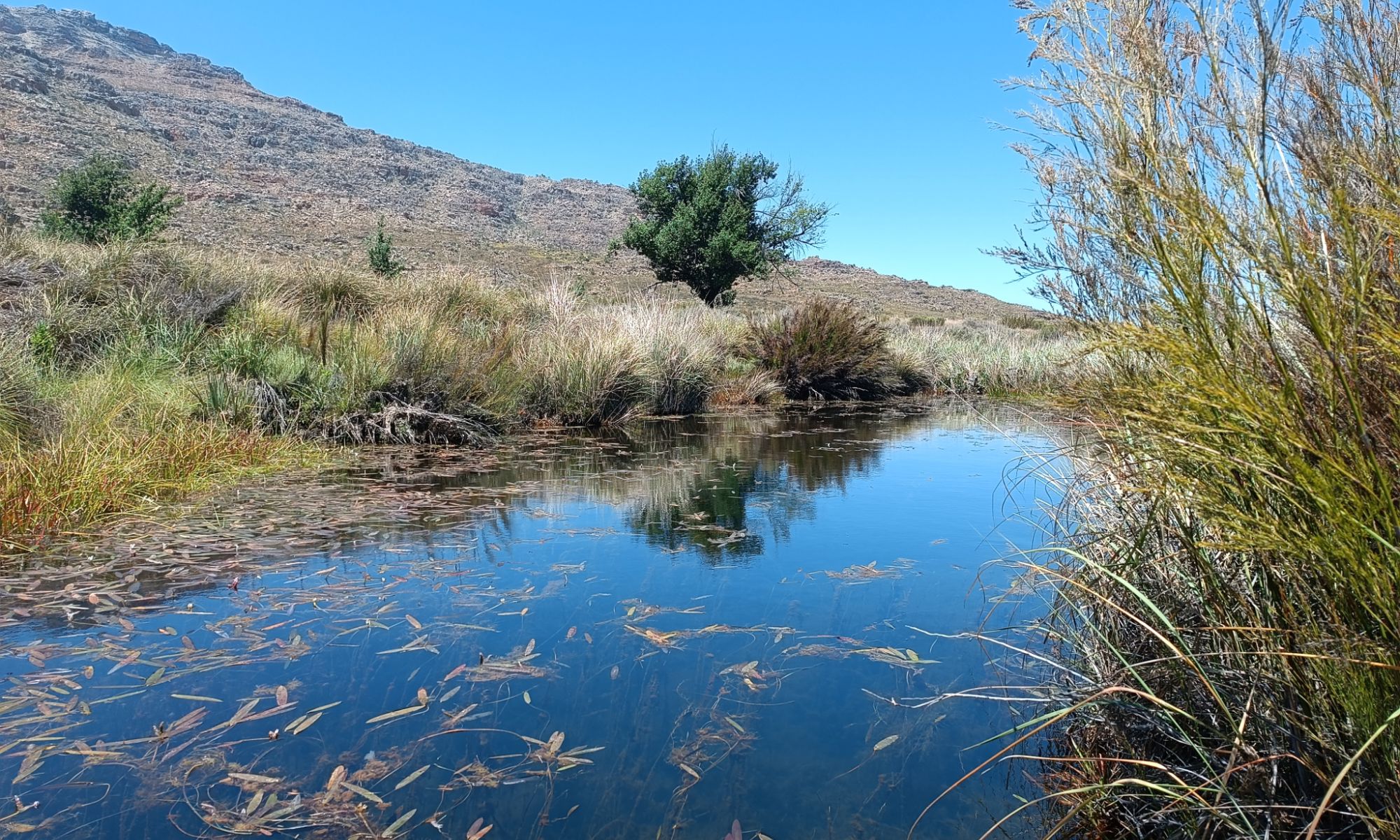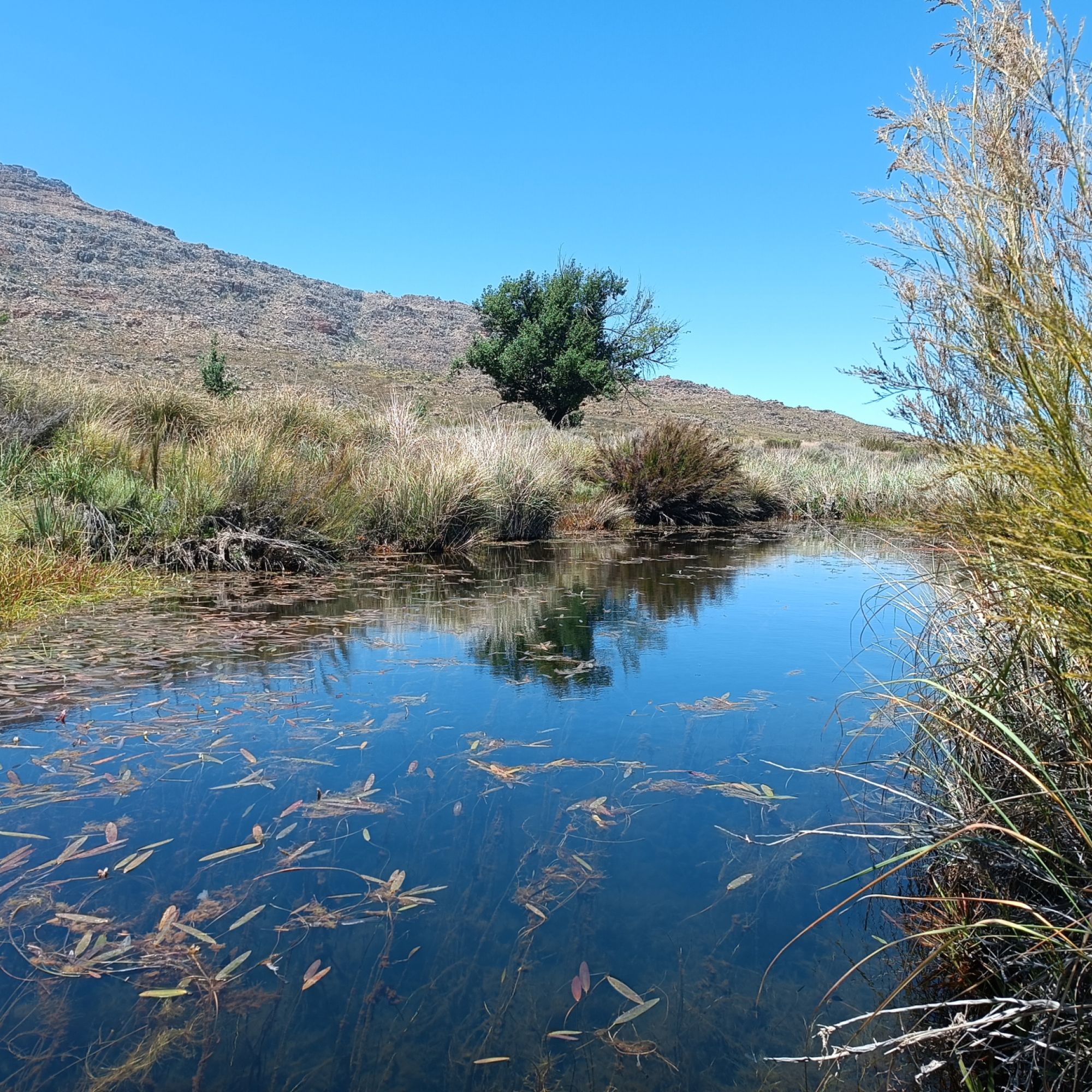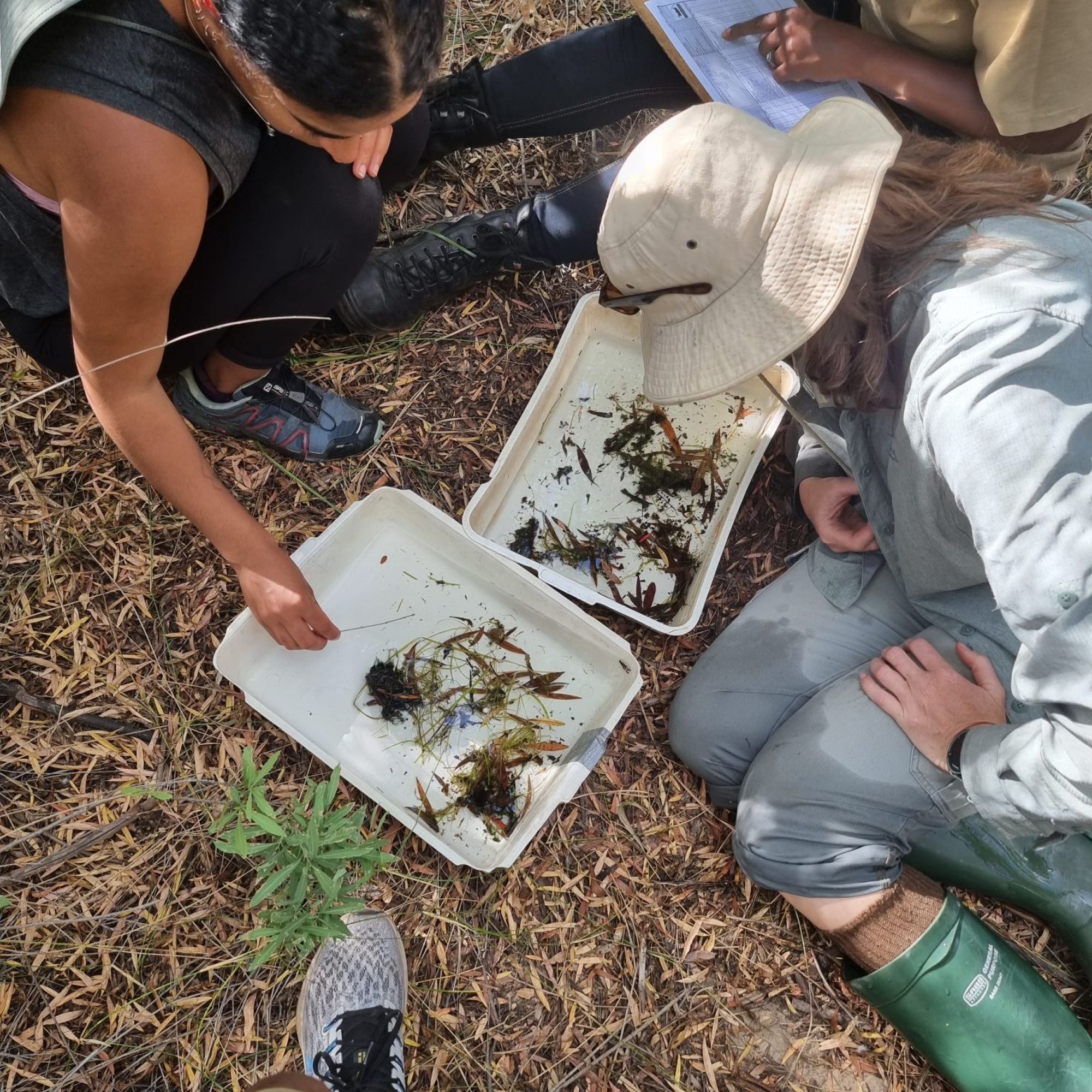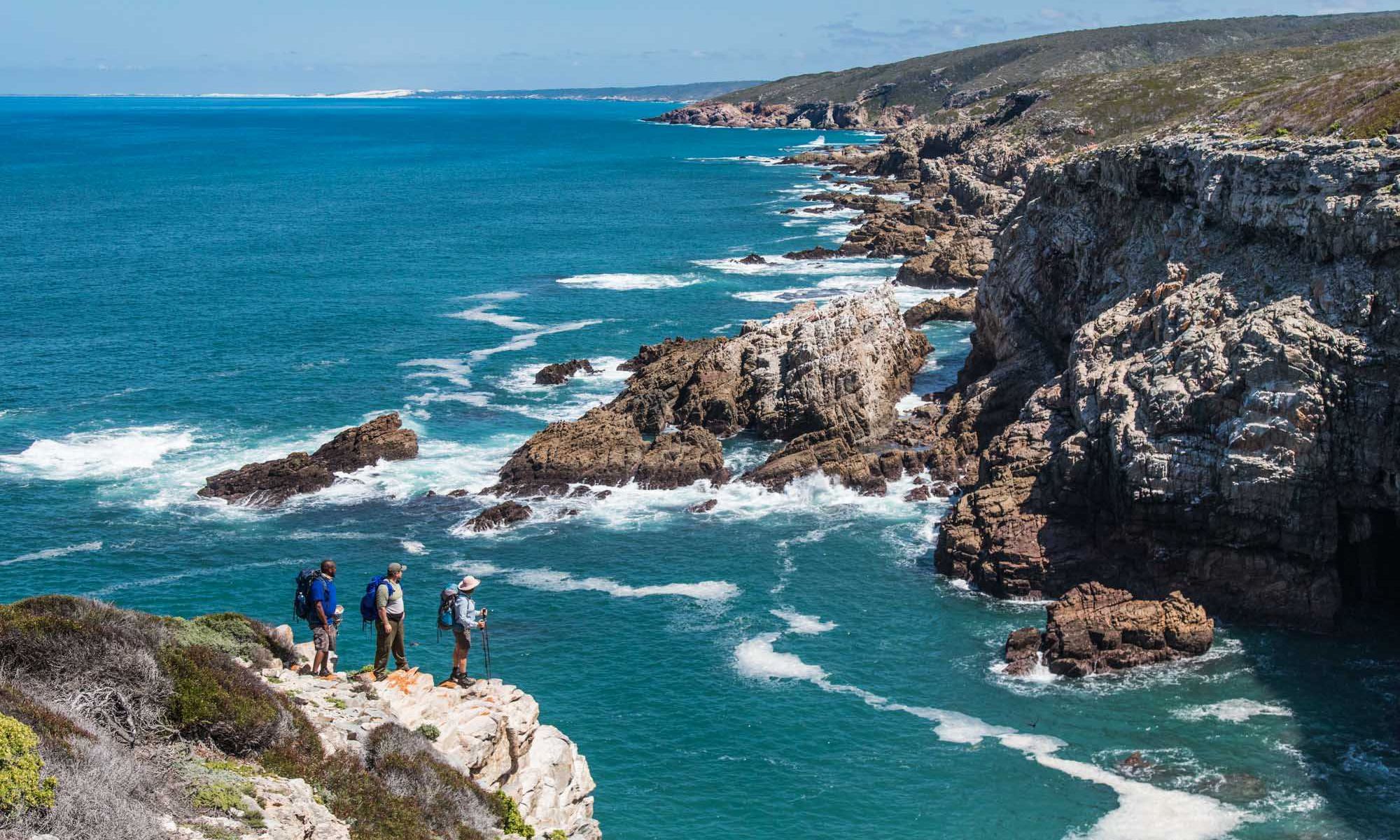
Water Quality Monitoring by CapeNature in the Cederberg Nature Reserve Complex
Animals and plants are used in science and monitoring as indicators of the health of an ecosystem, the so-called bio-indicators. In animals, both vertebrate and invertebrate species are used as bio-indicators. In rivers in South Africa, the established biological monitoring tool SASS 5 (or South African Scoring System version 5) uses macro-invertebrates (you can see them with the naked eye) to track water quality impacts.
This tool has been used to monitor river systems in CapeNature Protected Areas since at least the fourth version of this rapidly applied and cost-effective tool. One of the most recent surveys to use this tool, together with fish species sampling, was conducted in early December 2022. It was the freshwater system survey of the Cederberg Nature Reserve Complex. Staff from the regional and Nature Reserve office joined the CapeNature Fauna Ecologist for the region and the CapeNature Freshwater Ecologist for this survey. Sites were selected based on historical records of indigenous fish species' presence and whether there were any known impacts present. Sites are as far north as the Rondegat River, south as the Thee River, as far east as the Matjies River and as far west as the Heks River in the Cederberg Wilderness Area. Expectations were that most of the sites would be in at least a good, but preferably natural condition.
Results indicated a variation in river condition between sites. Based on the macro-invertebrate assemblages present. River condition in terms of water quality, varied from being modified (Driehoeks and Matjies river sites) to moderately modified (Breekkrans, Boskloof and upper Rondegat rivers), to good (lower Rondegat, Thee, Heks, Krom and Noordhoeks rivers).
The only site in a natural condition was on the Dwars River, despite the recent fire surrounding the area. The variation in the condition at these sites is quite surprising. It is expected that the patterns are mainly driven by the availability of habitat, where not all sites have a large enough variety of instream habitats. For example, the site on the Driehoeks River is mainly a pool habitat, which is not ideal for the SASS 5 method. However, the possible impacts on water quality observed during the survey included the, camping area (and its associated impacts) surrounding the upper Rondegat River site, the regular crossing of a herd of goats at the Breekkrans River site, the presence of invasive alien fish (bass species) in the Heks River and road crossings (bridges and causeways) at several sites.
These results support the importance of long-term monitoring to get a clear picture of variation in water quality and instream habitat diversity at least annually, but preferably on a seasonal basis.

Driehoeks River

SASS Tray at Heks River
Related News
How can I assist you today?
How can I assist you today?



